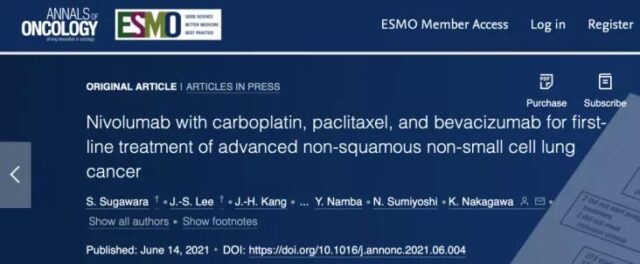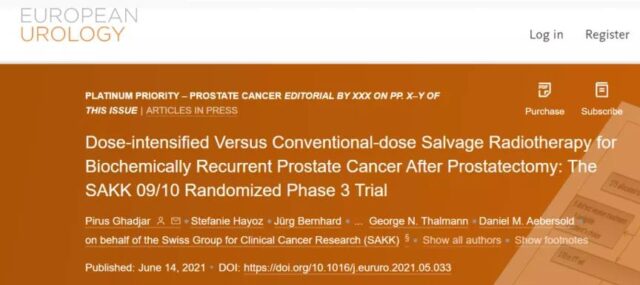First-line treatment of advanced nasopharyngeal cancer by immunotherapy
- Normal Liver Cells Found to Promote Cancer Metastasis to the Liver
- Nearly 80% Complete Remission: Breakthrough in ADC Anti-Tumor Treatment
- Vaccination Against Common Diseases May Prevent Dementia!
- New Alzheimer’s Disease (AD) Diagnosis and Staging Criteria
- Breakthrough in Alzheimer’s Disease: New Nasal Spray Halts Cognitive Decline by Targeting Toxic Protein
- Can the Tap Water at the Paris Olympics be Drunk Directly?
First-line treatment of advanced nasopharyngeal cancer by immunotherapy
First-line treatment of advanced nasopharyngeal cancer by immunotherapy. A study evaluating the effects of nivolumab combined with bevacizumab and chemotherapy as the first-line treatment of non-squamous non-small cell lung cancer (NSCLC) was published in ANNALS OF ONCOLOGY.
01. ANNALS OF ONCOLOGY: Immune combined four-drug regimen may become a new regimen for first-line treatment of non-squamous NSCLC
Recently, a study evaluating the effects of nivolumab combined with bevacizumab and chemotherapy as the first-line treatment of non-squamous non-small cell lung cancer (NSCLC) was published in ANNALS OF ONCOLOGY.
The results showed that nivolumab combined with carboplatin, paclitaxel, and bevacizumab can significantly improve the progression-free survival (PFS) of non-squamous NSCLC patients with any PD-L1 expression level.

In this international double-blind phase III clinical trial (ONO-4538-52/TASUKI-52), the investigators included patients with stage IIIB/IV or relapsed non-squamous NSCLC without EGFR, ALK, or ROS1 gene mutations. Patients were randomly assigned (1:1) to the nivolumab + chemotherapy group (carboplatin + paclitaxel + bevacizumab, once every 3 weeks, up to 6 cycles) or placebo + chemotherapy group. The primary endpoint of this study was PFS assessed by an independent center.
An interim analysis after a median follow-up time of 13.7 months showed that the PFS of patients in the nivolumab combined with chemotherapy group (12.1 months) was significantly longer than that in the placebo combined with chemotherapy group (8.1 months) (HR, 0.56; 96.4%CI) 0.43-0.71; P<0.0001). And all patients with PD-L1 expression levels (including PD-L1 negative patients) improved PFS. The objective response rates of nivolumab plus chemotherapy group and placebo plus chemotherapy group were 61.5% and 50.5%, respectively.
In all patients, the number of grade 3-4 treatment-related adverse events in the nivolumab group and the placebo group was equal. Among them, 5 deaths (1.8%) in the nivolumab combined chemotherapy group and 4 deaths (1.5%) in the placebo combined chemotherapy group were considered by the investigator to be related to treatment.
02. EUROPEAN UROLOGY: Biochemical progress after radical prostatectomy (RP) SRT treatment does not require dose enhancement
Salvage radiotherapy (SRT) is often used for the biochemical progression after radical prostatectomy (RP). The sakk09/10 trial aims to evaluate the results of conventional and dose-enhanced SRT. The results of the study show that the conventional dose is sufficient, and high-dose administration will only increase gastrointestinal side effects without bringing any benefits to patients.

Sakk09/10 is a randomized, multi-center, phase III trial for men with biochemical progress after being enrolled in RP. Patients were randomly assigned to the conventional dose (64Gy) or dose-intensive SRT (70Gy). The primary endpoint is no biochemical progress (FFBP). Secondary endpoints include clinical PFS, hormone treatment time, overall survival (OS), acute and late toxicity (common terminology criteria for adverse events v4.0), and quality of life (QoL).
The results of the study showed that after a median follow-up of 6.2 years, the FFBP of the 64Gy group was 8.2 years, the 70Gy group was 7.6 years, and the HR was 1.14 (log rank p=0.4). The 6-year incidence of FFBP was 62% and 61%, respectively. No significant differences in clinical PFS, hormone treatment time or OS were observed between the two groups. There were 35 cases (21%) and 13 cases (7.9%) in the 64Gy group, 46 cases (26%) and 7 cases (4%) in the 70Gy group, with grade 2 and grade 3 late genitourinary system toxicity (p=0.8). There were 12 cases (7.3%) and 7 cases (4.2%) in the 64Gy group, 35 cases (20%) and 4 cases (2.3%) in the 70Gy group had grade 2 and grade 3 late gastrointestinal toxicity (p=0.009).
(source:internet, reference only)
Disclaimer of medicaltrend.org
Important Note: The information provided is for informational purposes only and should not be considered as medical advice.



